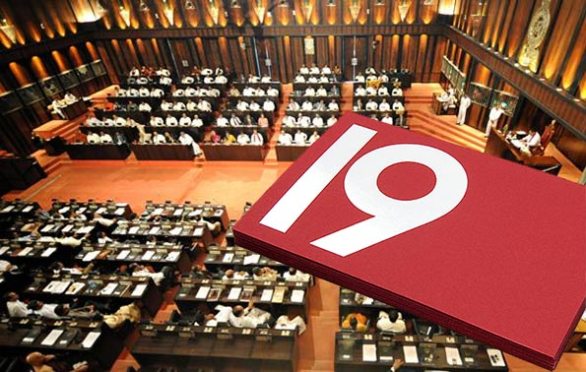COLOMBO – The new government, at its first Cabinet meeting on Wednesday (19), approved a proposal to abolish the 19th Amendment to the Constitution and draft the 20th Amendment.
Cabinet Spokesman and Minister of Media, Keheliya Rambukwella, told reporters Cabinet approval had been granted to abolish the 19th Amendment and draft the 20th Amendment to the Constitution.
Rambukwella told local media on Tuesday (18), the Cabinet would predominantly focus on the 19th Amendment to the Constitution and other changes to be proposed to the Constitution during its meeting on Wednesday.
Ministers have variously said the amendments, which will change the country’s basic law, will be a high priority for the government.
President Gotabaya Rajapaksa, who chaired Wednesday’s Cabinet meeting, has not made it a secret that the Independent Commissions that were introduced by the last Parliament under the 19th Amendment, has shackled him. He has wanted changes to be made so that more executive power are vested with the presidency.
However, government leaders have said that some of the Commissions would stay. Rambukwella said the Right to Information Act will also not be changed.
While in Opposition between 2015 and 2019, the Parliamentary Group led by Prime Minister Mahinda Rajapaksa supported the amendments introduced in the 19th Amendment.
Justice Minister Mohamed Ali Sabry told reporters earlier in the week that the five-year, two-term limit for the presidency, as well as the Independent Commissions, would remain in the Constitution.
“Clauses in the 19th Amendment that are detrimental to the country will be abolished and amended. We hope to introduce the 20th Amendment, which will be inclusive of all communities” he said.
He also added that the government hopes to table the 20th Amendment to the Constitution in Parliament by mid- September.
Amending Constitutions has been done by all governments which obtained a two-thirds majority in Parliament.
The process is however not simple. There are mandatory time periods for the changes to be presented to Parliament and the public at large. It also requires that time be given for citizens to challenge the proposed changes before the courts.
-ENCL/economynext.com


